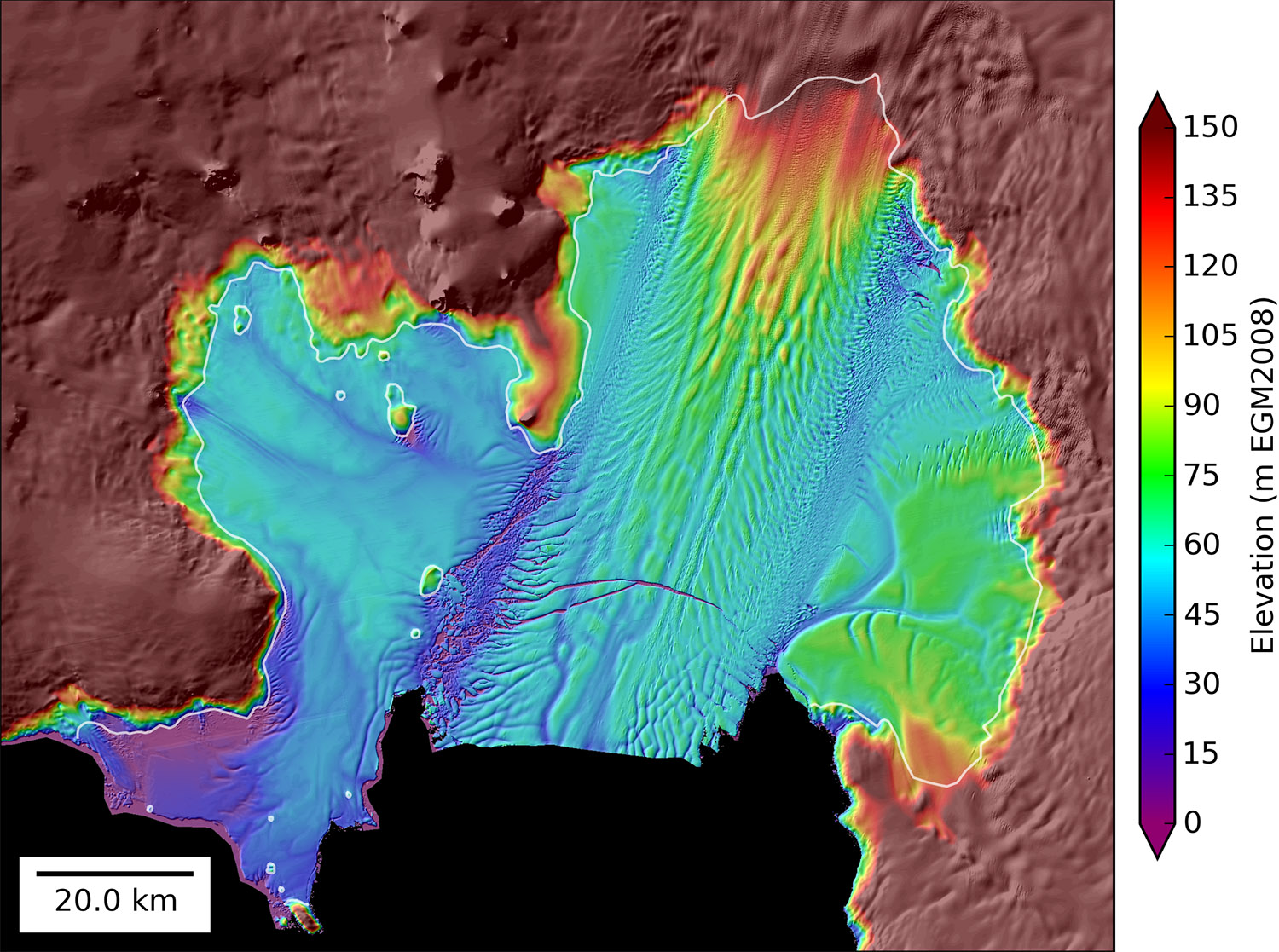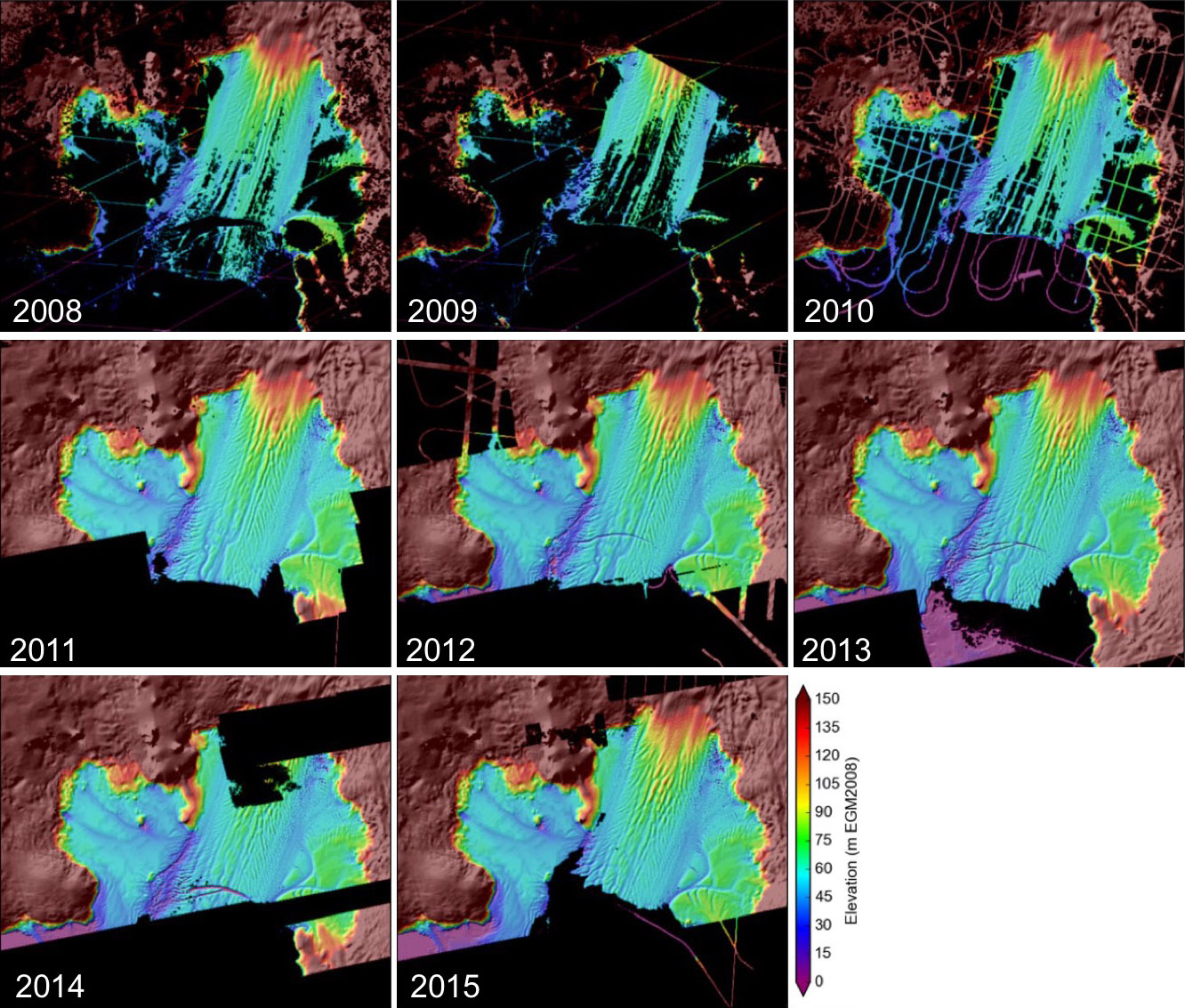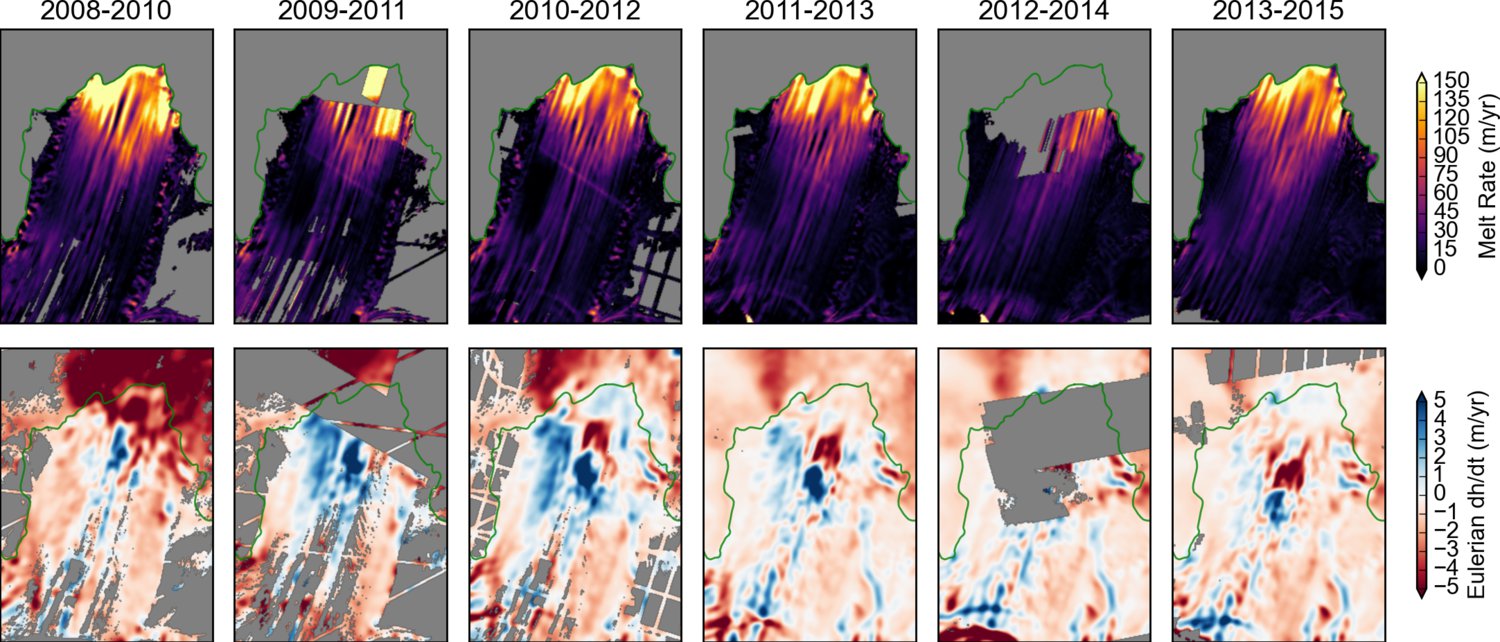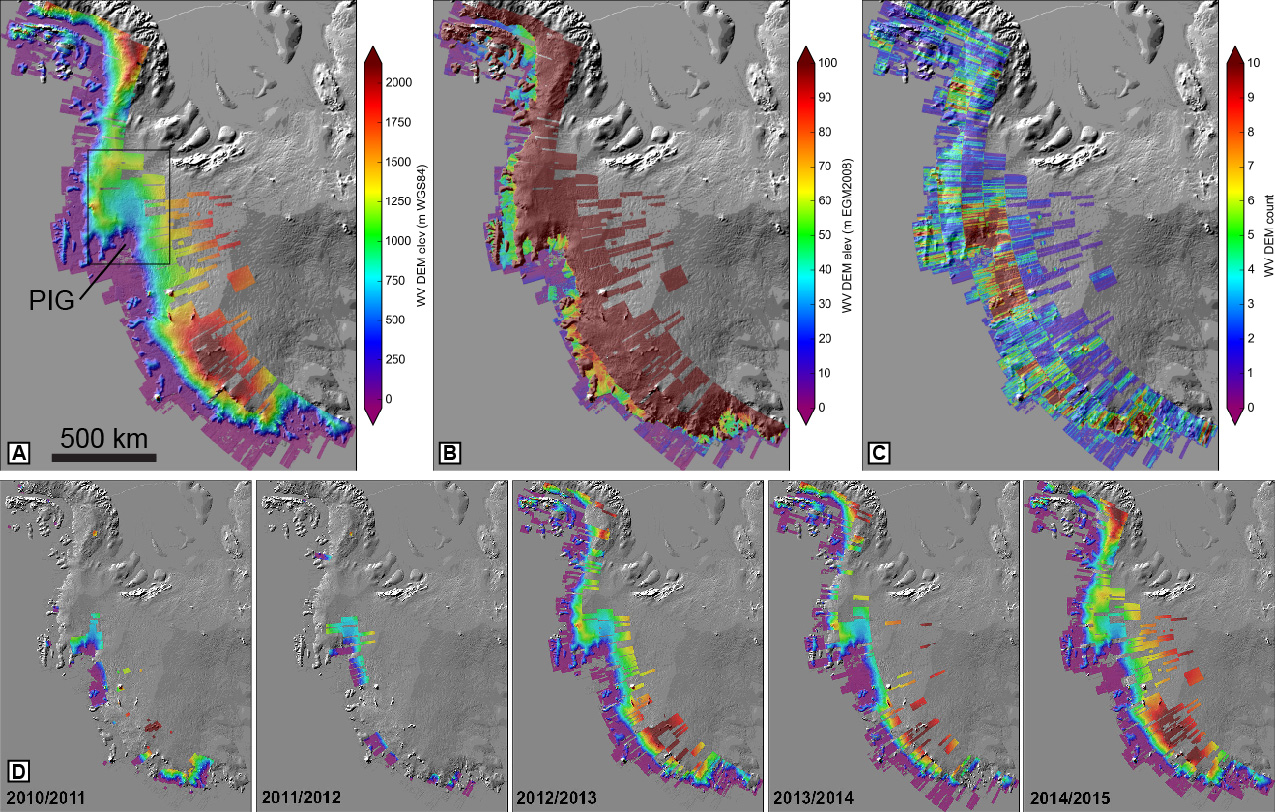
2012 DEM mosaic for Pine Island Glaicer ice shelf, Antarctica
Ocean-induced melting below Antarctic ice shelves accounts for over 50% of present-day mass loss, yet this process is poorly understood and notoriously challenging to observe.
Motivating questions:
- What is the spatiotemporal evolution of basal melting beneath vulnerable ice shelves in West Antarctica?
- How does observed basal melt relate to observed ocean temperature and circulation?
- What are implications for ice sheet stability and future sea level rise?
To answer these questions, we are using high-resolution measurements of surface elevation over time to measure ice shelf basal melt in West Antarctica. These observations can then be used to improve the ice flow models needed to understand future ice sheet behavior.

Annual DEM time series for Pine Island Glaicer ice shelf, Antarctica

Annual basal melt rate (top) and elevation change rate (bottom) for Pine Island Glaicer ice shelf, Antarctica
